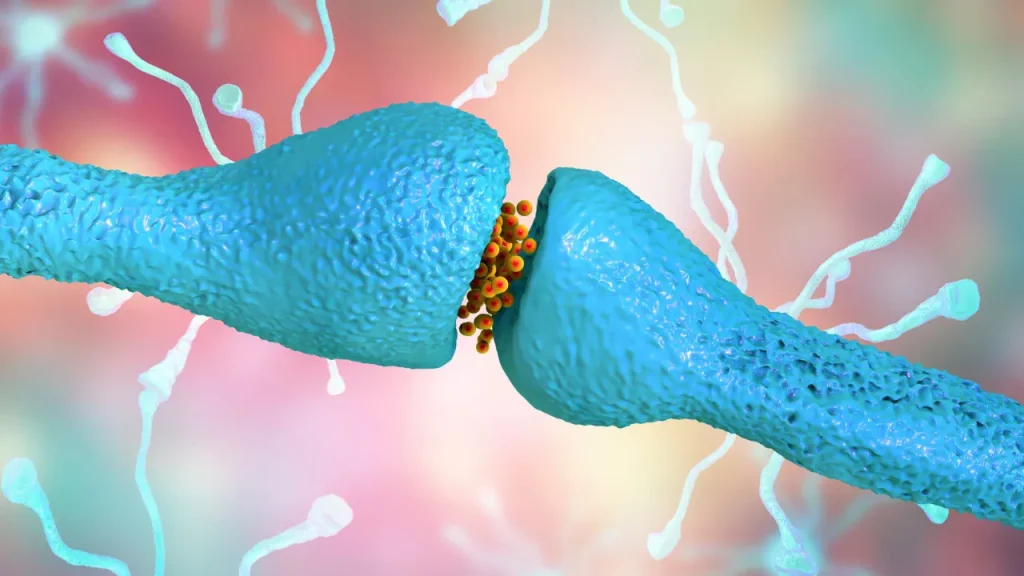In recent years, betaine hydrochloride (HCl) has become more popular as a nutritional supplement due to its many roles in the body and possible health effects. Betaine HCl is made from betaine (trimethylglycine), which is a natural substance found in sugar beets, wheat germ, and spinach, among other plants and animals. This piece is meant to help you learn more about the chemistry of betaine hydrochloride, as well as its health benefits, best dose, side effects, possible drug interactions, and how to use it safely.
You May Also Like:
Keep Your Brain Young With the 5 Most Powerful Nootropic Supplements
Finding the Best Supplements for Brain Fog After COVID: 5 Top Brands Reviewed
Betaine Hydrochloride: Benefits, Dosage, Side Effects, Drug Interactions, and Other Important Information is an original (NootropicsPlanet) article.
Nature of Betaine Hydrochloride
Betaine hydrochloride is made by mixing betaine, which is a natural mineral with hydrochloric acid to make a stable salt. There are many plant and animal sources of betaine, like sugar beets, wheat germ, and spinach. However, betaine hydrochloride does not appear naturally and must be made through a chemical reaction.
Because betaine hydrochloride is water soluble, it is easy for the body to take and use. Because of this, betaine hydrochloride is a good choice as a supplement, especially for people with hypochlorhydria or other situations where more stomach acid is needed. The fact that the compound is ionic also adds to its osmoprotective and methyl donor properties, which can help cell function and metabolism in different ways.
Health Benefits of Betaine Hydrochloride
- Better Digestion and Absorption of Nutrients: Taking Betaine HCl supplements may help people with hypochlorhydria because it stimulates the stomach to make more acid and makes it easier to absorb proteins, minerals, and other nutrients. This makes it easier to absorb nutrients and improve the health of the digestive system as a whole.
- Cardiovascular Health: Betaine can help lower homocysteine levels, which have been linked to a higher chance of cardiovascular diseases like atherosclerosis, stroke, and heart attack. It does this by acting as a methyl donor when homocysteine is changed into methionine.
- Liver Health: Betaine has been shown to stop fat from building up in the liver, especially in people with nonalcoholic fatty liver disease (NAFLD). It is thought to help the liver get rid of triglycerides, which stops fat from building up and reduces inflammation.
- Exercise performance: Some studies have shown that taking betaine supplements can improve muscle stamina, strength, and power output, but the results have been mixed. Betaine may help exercise ability by making more nitric oxide, causing the cells to stay more hydrated, and making people feel less tired.

Chemistry of Betaine Hydrochloride
Betaine hydrochloride, which has the formula C5H11NO2•HCl, is a solid powder that can be white or yellow and tastes a little bit bitter. The molecule is a quaternary ammonium substance that is made up of two molecules: one of trimethylglycine (betaine) and one of hydrochloric acid (HCl). The positively charged nitrogen atom in betaine forms an ionic bond with the negatively charged chlorine atom in HCl. This makes a stable salt that dissolves easily in water.
Physiological Mechanism of Betaine Hydrochloride
Betaine HCl is a source of hydrochloric acid, which is important for making stomach acid that breaks down proteins, minerals, and other foods. As mentioned, people with hypochlorhydria may have better digestion and nutrient intake if they take betaine HCl as a supplement.
Betaine is also an osmolyte, which is a chemical that helps keep cell volume and fluid balance in check. It prevents the cells from drying out and breaking down because it keeps proteins and cellular structures stable. Betaine also gives a methyl group to different biochemical processes, such as when homocysteine is changed into methionine. This process is needed to make S-adenosylmethionine (SAMe), a chemical that is involved in making neurotransmitters, methylating DNA, and many other important metabolic processes.

Optimal Dosage of Betaine Hydrochloride
The best amount of betaine HCl to take depends on many things, such as age, gender, and health. In general, people should take between 650 mg and 2,000 mg per day. This is usually done with meals to help digestion. But it’s important to talk to a doctor before starting to take supplements because everyone’s needs are different.
Side Effects of Betaine Hydrochloride
Most people can take betaine HCl without any problems, but some people may have side effects. These can include stomach problems, sickness, diarrhea, and the inability to go to the toilet. In rare cases, taking betaine HCl as a supplement can cause an allergic response like itchiness, a rash, or trouble breathing. If any of these signs happen, you should stop using them and see a doctor right away.
People who have had peptic ulcers, gastritis, or other stomach problems in the past should be careful when taking betaine HCl tablets, because the increased production of stomach acid may make these conditions worse.

Potential Substance Interactions with Betaine Hydrochloride
Antacids and Acid-Reducing Medications: Betaine HCl may interact with drugs that neutralize or decrease stomach acid production, such as antacids, proton pump inhibitors (PPIs), and H2-receptor antagonists. If you take these medicines with betaine HCl at the same time, it could make them less effective or make your stomach problems worse.
Medications for Blood Pressure: Taking extra betaine has been shown to improve the production of nitric oxide, which can lower blood pressure. Before using betaine HCl, people who take blood pressure medicine should talk to a doctor or nurse because they may need to change how they take their medicine.
Cholinergic Medications: Cholinergic medicines, which are used to treat Alzheimer’s disease, glaucoma, and other diseases, may interact with betaine HCl. The ability of betaine HCl to give a methyl group may affect how these medicines are broken down, which could affect how well they work and how safe they are.
Responsible Use of Betaine Hydrochloride
To make sure that betaine HCl is used responsibly as a food supplement, people should think about the following:
- Talk to a Healthcare Professional: Before taking betaine HCl supplements, you should talk to a healthcare professional to find out the right dose and if there are any risks or drug problems.
- Start with a Low Dose: To lower the risk of side effects, start with a lower dose of betaine HCl and slowly increase it as required. Keep an eye out for any side effects and stop using if they happen.
- Take with Food: Betaine HCl works best for digestion and nutrient uptake when it is taken with food. If you don’t have anything to eat, don’t take betaine HCl. This could make you more likely to have stomach problems.
- Keep an eye on your homocysteine levels. People who take betaine HCl supplements to lower their homocysteine levels should have regular blood tests to check their progress and make sure they are taking the right amount.
Betaine Hydrochloride:
Conclusion
Betaine Hydrochloride is gaining recognition in the health and wellness community as it is believed to support digestive health by promoting proper stomach acid levels. Additionally, some people claim that it assists in weight management and maintaining the health of the liver as it stops fat from building in the liver. This supplement is involved in various metabolism in the body which explains its wide range of benefits.
However, it is crucial to approach the incorporation of Betaine Hydrochloride cautiously and you must consult with healthcare professionals for personalized advice on dosage and suitability. Your supplements should only be sourced from trusted supplement providers to ensure the quality of the product.

References:
- Meal-Time Supplementation with Betaine Hcl for Functional Hypochlorhydria: What is The Evidence? Retrieved from:https://www.ncbi.nlm.nih.gov/pmc/articles/PMC7238915/
- The Effects of Chronic Betaine Supplementation on Body Composition and Performance in Collegiate Females: A Double-Blind, Randomized, Placebo Controlled Trial. Retrieved from:https://jissn.biomedcentral.com/articles/10.1186/s12970-018-0243-x
- Betaine Supplementation Moderately Increases Total Cholesterol Levels: A Systematic Review and Meta-Analysis. Retrieved from: https://pubmed.ncbi.nlm.nih.gov/31809615/
Important Note: The information contained in this article is for general informational purposes only, and should not be construed as health or medical advice, nor is it intended to diagnose, prevent, treat, or cure any disease or health condition. Before embarking on any diet, fitness regimen, or program of nutritional supplementation, it is advisable to consult your healthcare professional in order to determine its safety and probable efficacy in terms of your individual state of health.
Regarding Nutritional Supplements Or Other Non-Prescription Health Products: If any nutritional supplements or other non-prescription health products are mentioned in the foregoing article, any claims or statements made about them have not been evaluated by the U.S. Food and Drug Administration, and such nutritional supplements or other health products are not intended to diagnose, treat, cure, or prevent any disease.


